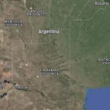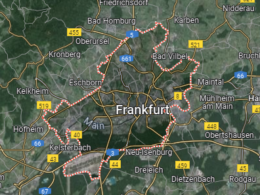Argentina is home to the world’s widest avenue, Avenida 9 de Julio, located in Buenos Aires.
The country has the highest consumption of beef per capita globally, with its famous beef cuts like asado and bife de chorizo.
Argentina has one of the world’s highest rates of psychiatric medication consumption.
The national dance of Argentina is the tango, originating in Buenos Aires in the late 19th century.
The Iguazu Falls on the border with Brazil are higher and wider than Niagara Falls, spanning 2.7 kilometers.
Argentina is the birthplace of Pope Francis, who was born Jorge Mario Bergoglio in Buenos Aires.
The Andes Mountains in Argentina are home to Aconcagua, the highest peak in South America, standing at 6,961 meters.
Argentina has the world’s southernmost city, Ushuaia, often referred to as the “End of the World.”
Mate (pronounced mah-teh) is a traditional Argentine drink made from yerba mate leaves and is consumed socially from a gourd with a metal straw (bombilla).
The city of La Plata, founded in 1882, was designed on a grid pattern and is known for its neoclassical architecture.
The Perito Moreno Glacier in Patagonia is one of the few glaciers in the world that is still advancing.
Argentina has one of the world’s largest Jewish populations outside of Israel, particularly in Buenos Aires.
The country has a strong Italian heritage, with many Argentines tracing their ancestry to Italian immigrants.
Argentina has the highest number of psychiatrists per capita in the world.
The country has a tradition of large-scale cattle ranching, with the Pampas region known for its vast grasslands.
The Gaucho culture, synonymous with Argentine cowboys, celebrates horsemanship, traditional dress, and folk music.
Argentina hosted the FIFA World Cup in 1978 and won the tournament for the first time in its history.
The Buenos Aires subway system is the oldest in Latin America and the Southern Hemisphere.
Argentina has a strong literary tradition, with writers like Jorge Luis Borges and Julio Cortázar gaining international acclaim.
The city of Cordoba is one of the oldest in Argentina and has the second-oldest university in South America, founded in 1613.
The Argentine wine industry is renowned for its Malbec wines, particularly those from the Mendoza region.
Argentina has a significant Welsh community in Patagonia, established in the 19th century.
The country has diverse landscapes, from the arid Andean plateaus to the lush rainforests of Misiones.
Football (soccer) is a national obsession in Argentina, with passionate rivalries between clubs like Boca Juniors and River Plate.
The Recoleta Cemetery in Buenos Aires is the final resting place of many notable Argentines, including Eva Perón.
Argentina has a high level of internet penetration, with Buenos Aires having many tech startups and coworking spaces.
The Argentine film industry is known for producing internationally acclaimed directors like Lucrecia Martel and Pablo Trapero.
The Patagonian Desert in Argentina is the largest desert in the country and one of the largest in the world.
Argentina has a tradition of mate (mah-teh) consumption, a herbal drink shared among friends and family.
The country has a significant German heritage, especially in the Lake District of Patagonia.
Argentina has one of the largest economies in Latin America and is a member of the G20 group of major economies.
The Tango, a dance originating in Buenos Aires in the late 19th century, is Argentina’s national dance.
The Iguazu Falls on the border with Brazil are higher and wider than Niagara Falls, spanning 2.7 kilometers.
Argentina is the birthplace of Pope Francis, who was born Jorge Mario Bergoglio in Buenos Aires.
The Andes Mountains in Argentina are home to Aconcagua, the highest peak in South America, standing at 6,961 meters.
Argentina has the world’s southernmost city, Ushuaia, often referred to as the “End of the World.”
Mate (pronounced mah-teh) is a traditional Argentine drink made from yerba mate leaves and is consumed socially from a gourd with a metal straw (bombilla).
The city of La Plata, founded in 1882, was designed on a grid pattern and is known for its neoclassical architecture.
The Perito Moreno Glacier in Patagonia is one of the few glaciers in the world that is still advancing.
Argentina has one of the world’s largest Jewish populations outside of Israel, particularly in Buenos Aires.
The country has a strong Italian heritage, with many Argentines tracing their ancestry to Italian immigrants.
Argentina has the highest number of psychiatrists per capita in the world.
The country has a tradition of large-scale cattle ranching, with the Pampas region known for its vast grasslands.
The Gaucho culture, synonymous with Argentine cowboys, celebrates horsemanship, traditional dress, and folk music.
Argentina hosted the FIFA World Cup in 1978 and won the tournament for the first time in its history.
The Buenos Aires subway system is the oldest in Latin America and the Southern Hemisphere.
Argentina has a strong literary tradition, with writers like Jorge Luis Borges and Julio Cortázar gaining international acclaim.
The city of Cordoba is one of the oldest in Argentina and has the second-oldest university in South America, founded in 1613.
The Argentine wine industry is renowned for its Malbec wines, particularly those from the Mendoza region.
Argentina has a significant Welsh community in Patagonia, established in the 19th century.
The country has diverse landscapes, from the arid Andean plateaus to the lush rainforests of Misiones.
Football (soccer) is a national obsession in Argentina, with passionate rivalries between clubs like Boca Juniors and River Plate.
The Recoleta Cemetery in Buenos Aires is the final resting place of many notable Argentines, including Eva Perón.
Argentina has a high level of internet penetration, with Buenos Aires having many tech startups and coworking spaces.
The Argentine film industry is known for producing internationally acclaimed directors like Lucrecia Martel and Pablo Trapero.
The Patagonian Desert in Argentina is the largest desert in the country and one of the largest in the world.
Argentina has a tradition of mate (mah-teh) consumption, a herbal drink shared among friends and family.
The country has a significant German heritage, especially in the Lake District of Patagonia.
Argentina has one of the largest economies in Latin America and is a member of the G20 group of major economies.
**Please note that this post may contain affiliate links. When booking through one of our links, we earn a small kickback at no extra cost to you and it’s a big help to keep the site up and running.









